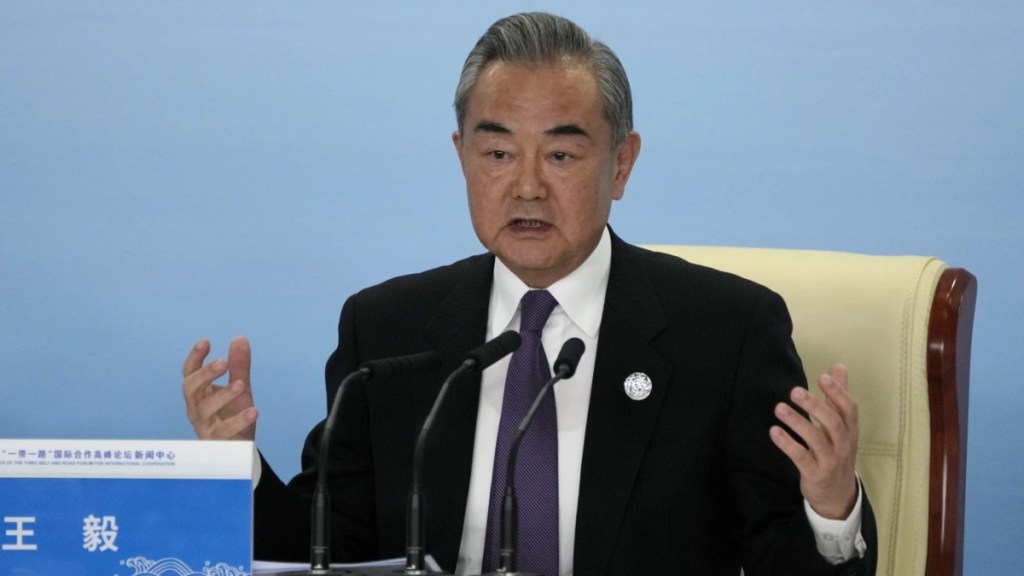Amid rising regional tensions and a fragile ceasefire between Pakistan and India, three major international allies – China, Turkey and Azerbaijan have voiced strong support for Pakistan’s sovereignty and territorial integrity, reaffirming their strategic partnerships with Islamabad.
Pakistan violated the ceasefire agreement on Saturday, targeting multiple locations along the International Border and the Line of Control (LoC) in Jammu and Kashmir, including Srinagar as well as areas in Punjab and Rajasthan. The breach came just hours after both countries had agreed to a truce.
On Saturday, China’s Foreign Minister Wang Yi reiterated his country’s steadfast support for Pakistan during a phone call with Deputy Prime Minister and Foreign Minister Ishaq Dar.
“He reaffirmed that China, as Pakistan’s all-weather strategic cooperative partner and iron-clad friend, will continue to stand firmly by Pakistan in upholding its sovereignty, territorial integrity, and national independence,” Pakistan’s Foreign Office said.
Wang acknowledged Pakistan’s “restraint and appreciated its responsible approach under challenging circumstances.”
In a separate diplomatic outreach, Dar also spoke with UAE Deputy Prime Minister and Foreign Minister Sheikh Abdullah bin Zayed, who welcomed the newly announced ceasefire agreement between India and Pakistan. The truce was reportedly brokered through US-mediated talks, with President Donald Trump and Secretary of State Marco Rubio both praising the agreement. Rubio commended the leadership of Indian Prime Minister Narendra Modi and Pakistani Prime Minister Shehbaz Sharif for opting for peace amid escalating hostilities.
Turkey condemns India’s actions and backs Pakistan
Meanwhile, Turkey has emerged as a vocal supporter of Pakistan. On Wednesday, Ankara condemned India for what it described as “provocative steps” and accused New Delhi of targeting civilians and infrastructure. President Recep Tayyip Erdoğan further backed Pakistan’s call for a “neutral” investigation into an earlier attack on Indian tourists—a demand India has firmly rejected.
Turkey’s support has been reinforced by symbolic and material actions. A Turkish Air Force C-130 transport aircraft made a stop in Pakistan earlier in the week, reportedly for refuelling, while a Turkish naval warship docked at Karachi port, a move Ankara called a “goodwill gesture.”
However, India has accused Pakistan of using Turkish-made drones in attacks on Indian cities. Indian military officials claimed that 300 to 400 Asisguard Songar drones, manufactured in Turkey, were deployed in recent attacks. Forensic analysis allegedly confirms the drones’ Turkish origin—an allegation Pakistan has denied.
Pakistan’s drone arsenal is known to include Turkish, Chinese, and domestically produced models. With tensions simmering and Islamabad warning that it reserves the right to respond to aggression at a time of its choosing, the possibility of Turkish-made drones being involved in future operations remains on the table.
Azerbaijan backs Pakistan
Furthermore, Azerbaijan also expressed solidarity with the people of Pakistan and urged both India and Pakistan to resolve their conflict through “diplomatic means.”
“The Republic of Azerbaijan expresses its concern over the further escalation of tension between the Republic of India and the Islamic Republic of Pakistan. We condemn military attacks against the Islamic Republic of Pakistan that killed and injured several civilians. Being in solidarity with the people of Pakistan, we express condolences to the families of the innocent victims and wish a speedy recovery to those who were injured,” the Ministry of Foreign Affairs, Republic of Azerbaijan, said in a statement.
It added, “We call on all parties to exercise restraint and to resolve the conflict through diplomatic means.”
